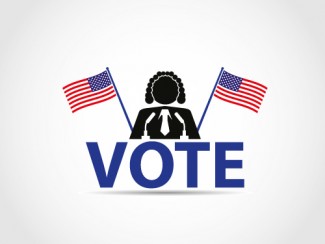Does 'election effect' influence state justices in capital cases? Study finds correlation

Image from Shutterstock.
A study of capital appeals raises questions about the influence of political pressure on elected judges hearing the cases.
The Reuters study found that state supreme courts made up of directly elected justices reverse deaths sentences in just 11 percent of appeals, compared to a reversal rate of 27 percent in states where state supreme court justices are appointed.
According to a Reuters story on the findings, “the election effect was a far stronger variable in determining outcomes of death penalty cases than state politics and even race.” Reversal rates were about the same in red and blue states. White defendants obtained reversals of their death sentences slightly more often than African-Americans; the reversal rates were 15 percent and 12 percent, respectively.
The study looked at more than 2,100 state supreme court rulings in 37 states that considered direct capital appeals in the past 15 years. State supreme court justices are directly elected in 15 states, appointed in seven states, and appointed before facing retention elections in 15 states.
The reversal rates were in the middle for retention-election courts, which reversed about 15 percent of death sentences.



